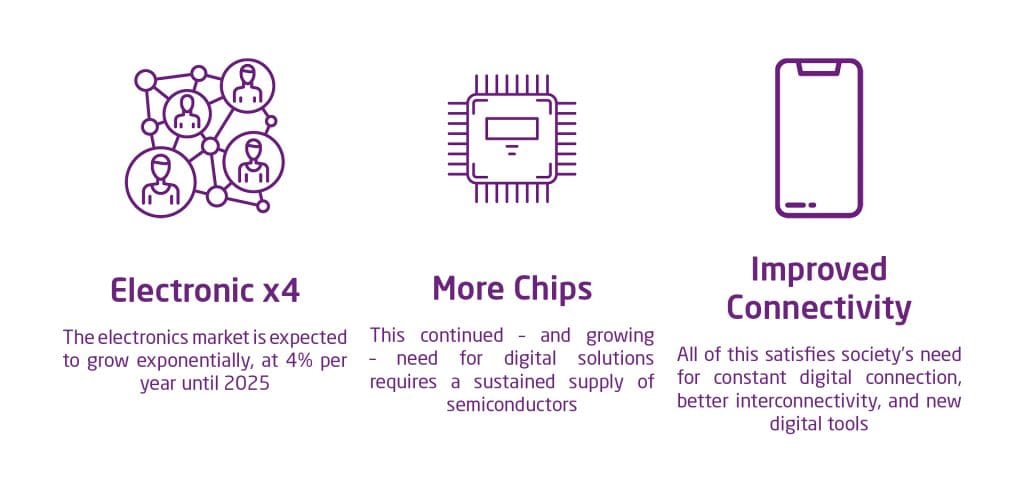IMPHY® N42 E: The Iron Nickel Controlled Expansion Alloy for Chemical Etching
Which grade best meets the manufacturing challenge of the extremely small parts found in electronic devices?
Home Which grade best meets the requirements of the extremely small parts found in electronic devices?
Across all industries, a strong miniaturisation trend increases the complexity of electronic devices. This trend represents a real challenge for material suppliers, who must meet these increasing quality requirements. The mechanical and surface properties of the metal used must allow the best performances as regards the etching and/or forming processes involved in the manufacturing of the electronic component. Moreover, controlled thermal expansion of the alloy is a must to accommodate the properties of the semiconductor substrate. At such a small scale, even the smallest surface defect or expansion mismatch can lead to critical problems. To make matters even more challenging, all these optimisations of material properties must be achieved in a cost-efficient manner.


How it Works
Chemical Etching is a high precision subtractive microfabrication process that uses baths of temperature-regulated etching chemicals to selectively remove material to produce high precision metal parts in any desired shape. Etching allows fot the cutting of the high precision shapes required for manufacturing electronic component. In these conditions, any non-metallic particles in the material could jeopardise our customer’s process , Photo (Chemical) Etching, Electrochemical Etching, Photo (Chemical) Milling, Photo Chemical Machining, and Industrial Etching. Etching.
The IMPHY® N42 E Advantage
Our IMPHY® N42 E alloy plays an essential role in producing the miniature, ultra-precise, small and lightweight electronic components. This is possible thanks to its optimised and outstanding mechanical, surface and thermal expansion properties. Aperam has created a smart alloy to support the development of smart devices!


 -0,52%
-0,52%